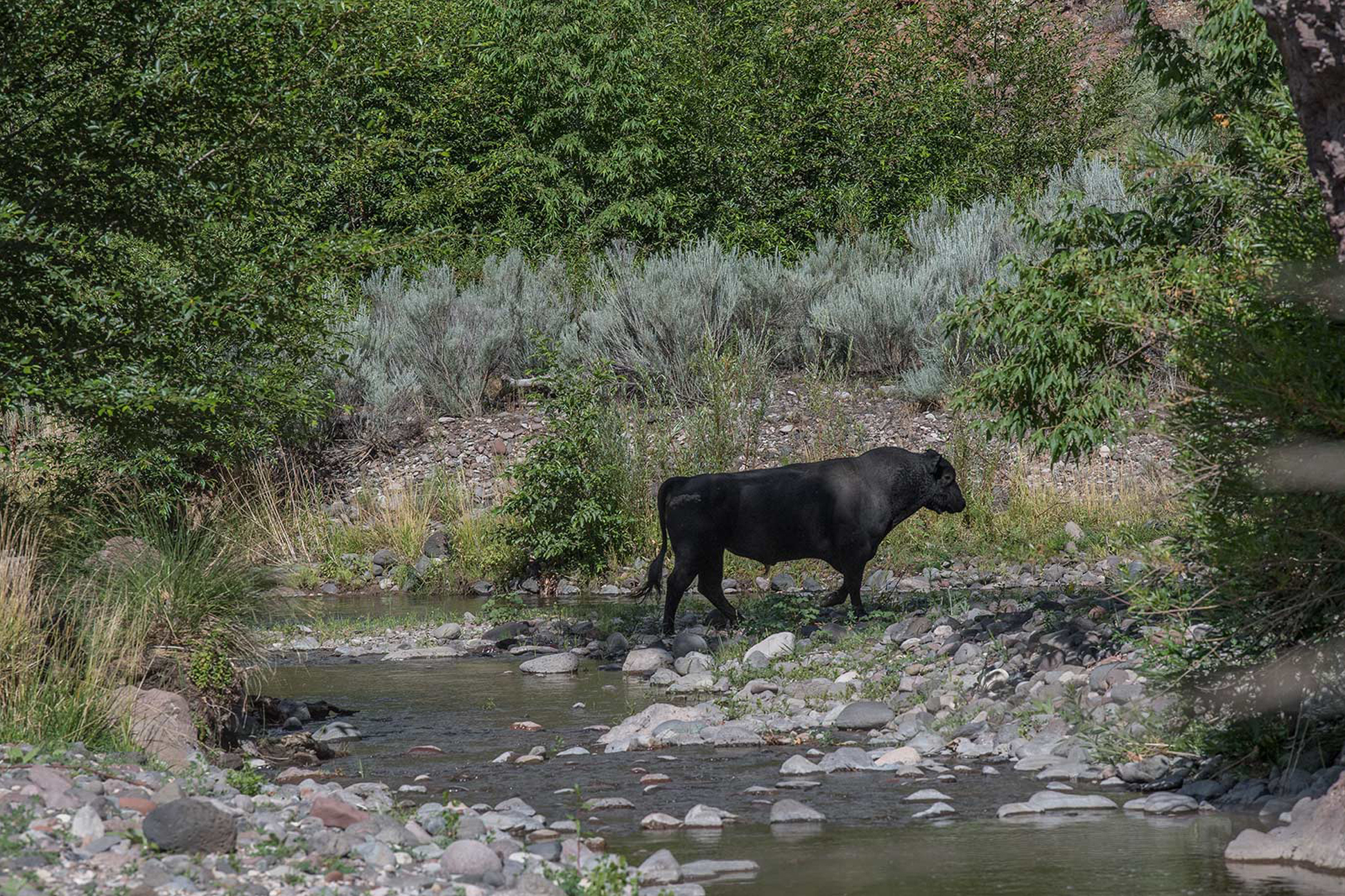Feral cows to be gunned down by shooters in helicopters in US national forest
The 150 cattle "pose a significant threat to public safety" and the environment.
Feral cows roaming wild around southwest New Mexico will be gunned down by shooters in helicopters beginning next week, according to a plan approved by U.S. officials.
About 150 feral cattle, which authorities say “are not domesticated animals and pose a significant threat to public safety and natural resources,” will be hunted by “aerial shooting” and will take place over four days beginning Thursday, Feb. 23 at the Gila National Forest, according to the U.S. Forest Service.
A closure order has been issued in the area of operations of the 3.3 million acre reserve in southwest New Mexico and the public has been asked to avoid the area completely while the culling takes place.
“This has been a difficult decision, but the lethal removal of feral cattle from the Gila Wilderness is necessary to protect public safety, threatened and endangered species habitats, water quality, and the natural character of the Gila Wilderness,” said Camille Howes, Gila National Forest Supervisor. “The feral cattle in the Gila Wilderness have been aggressive towards wilderness visitors, graze year-round, and trample stream banks and springs, causing erosion and sedimentation. This action will help restore the wilderness character of the Gila Wilderness enjoyed by visitors from across the country.”
Authorities say that this is the most “efficient and humane way” to deal with the animals and that Gila National Forest officials are working closely together with the USDA Animal and and Plant Health Inspection Service (APHIS) on this operation.
“All dispatched cattle will be left onsite to naturally decompose,” read a statement detailing the confirmation of the cattle removal from the U.S. Forest Service. “Forest Service staff will ensure no carcasses are adjacent to or in any waterbody or spring, designated hiking trail, or known culturally sensitive area. A wilderness minimum requirements decision guide has been completed and approved before using any methods otherwise prohibited under the Wilderness Act.”

Forest officials say that some cattle growers have expressed concern to them that non-feral branded cattle could have strayed into the Gila National Forest due to fences and water gaps that were damaged during an unusually strong monsoon season over the past several months.
“The Forest Service is committed to continued efforts toward collaborative solutions and will continue to coordinate with permittees in their efforts to locate, gather, and remove their branded cattle from areas where they are not authorized,” officials said.
The issue regarding the feral cattle has been ongoing since the 1990s, according to the official decision memorandum released on Thursday, and several hundred cattle were destroyed between 1996 and 1998 in an effort to control the growing population.
In fact, in the past 25 years, the forest has issued a total of nine contracts that have resulted in the removal of 211 cattle, with the last order coming a year ago in Feb. 2022 when 65 feral cattle were lethally removed. Authorities estimate that around 150 will be eliminated during the cull set to take place next week.
If branded cattle are lethally removed during gathering or aerial operations, U.S. Forest Service officials say the owner may request compensation by contacting the U.S. Forest Service, Southwestern Region or the Gila National Forest.




